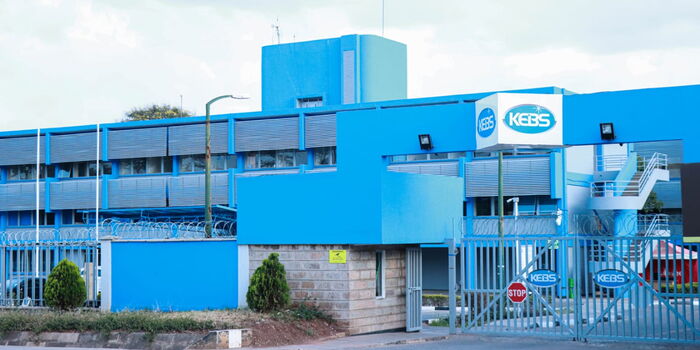The Kenya Bureau of Standards (KEBS) has dismissed initial reports that contaminated rice might have entered the Kenyan market.
In a statement released on Wednesday, December 11, KEBS revealed that the rice reported to have been contaminated was tested and passed the necessary tests.
”We wish to assure all Kenyans that the rice available in the market is safe and fit for consumption. The Kenya Bureau of Standards (KEBS) has taken note of the recent media report suggesting that KEBS has not raised an alarm about the quality of rice in the Kenyan market,” KEBS stated.
According to KEBS, the rice that originated from Pakistan satisfied the necessary aflatoxin levels contrary to earlier indications.
A picture of KEBS MD Esther Ngari addressing the SRC Conference on wage bill reduction.
Photo
KEBS
”The outcome of the testing indicated that the aflatoxin levels were within acceptable limits (0.58 µg/kg against a requirement of 10 µg/kg) and therefore fit for human consumption upon testing,” it added.
Additionally, the agency revealed that the rice was approved to hit the shelves with its original diamond mark of quality proving that it was not fake.
”Diamond mark of quality is granted to products that have met and exceeded the requirements of the Kenyan Standard and therefore assures consumers of high quality and safety,” it added.
On the 452 bags of rice that were reported to have entered the market, KEBS announced that it found the said rice at one of the companies where it was stored. The safety agency announced that it is in the process of destroying the rice after detaining the 452 bags.
”The 452 bags of rice found at(company name withheld) were seized by KEBS in the interest of consumer safety and subjected to laboratory analysis. The outcome of the analysis confirmed that the rice was not fit for human consumption due to high aflatoxin levels KEBS is in the process of destroying all the 452 bags of nice seized,” KEBS added.
However, at the same time, the agency indicated that it could be possible for products such as rice to deteriorate over time when stored for long.
The report emerged less than a day after multiple media outlets reported that documents from KEBS, obtained on Tuesday, exposed how rice deemed unfit for human consumption was diverted into the Kenyan market.
The report further disclosed that a consignment of 83,000 bags of 25kg rice was ferried from the Kilindini port in Mombasa to Nairobi, where it was repacked and redistributed to several wholesale and retail outlets.
Further, it revealed that when KEBS officials realised that the rice had entered the market despite failing to meet the required standards, they initiated a crackdown but only managed to seize 23,000 kg.
Photo collage of different marks of quality approved by the Kenya Bureau of Standards.
Photo
KEBS


